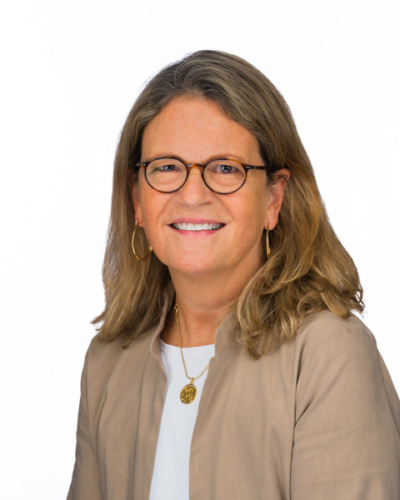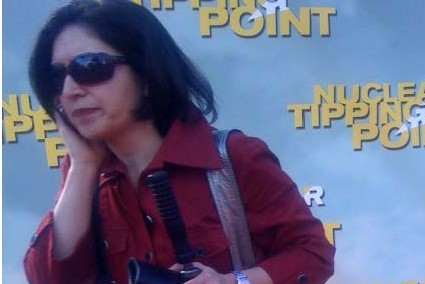
Mimi Hall
Vice President, Communications
Atomic Pulse
As a founding member of NTI’s Communications team, Cathy Gwin has played a critical role in advancing NTI’s public education and outreach mission. As NTI’s media liaison, she has supported all of the organization’s signature initiatives, including the successful development of an IAEA low-enriched uranium bank in Kazakhstan and the film Last Best Chance, a fictional account of Al-Qaeda operatives obtaining nuclear weapons and weapons material. Gwin also served as the primary film liaison for Nuclear Tipping Point, a documentary with the late former Secretary of State George P. Shultz, former Secretary of Defense William J. Perry, former Secretary of State Henry A. Kissinger and former Senator Sam Nunn describing their efforts to galvanize global action to reduce urgent nuclear dangers and build support for reducing reliance on nuclear weapons, ultimately ending them as a threat to the world.
Over the course of this year, as NTI marks its 20th anniversary, our experts will share some reflections on two decades of working to build a safer world—accomplishments and challenges, lessons learned along the way, visions for the future. Today, we hear from Gwin, who worked with Sam Nunn as his press secretary in the U.S. Senate and also served as spokesperson for the Senate Armed Services Committee and the Permanent Subcommittee on Investigations.
You worked with Senator Nunn on Capitol Hill and then as his communications director after he retired from the Senate. What did you think when he asked you to join a start-up non-profit to tackle global nuclear threat reduction?
We were enjoying our work at the law firm of King & Spalding in 2000 when Ted Turner watched a “60 Minutes” program on nuclear weapons and decided he wanted to create a foundation to rid the world of nuclear weapons. After a six-month scoping study to find common ground on our mission and to explore whether a non-governmental organization could be effective in reducing nuclear and biological dangers, NTI launched in January of 2001 to a packed crowd—much to my relief—at the National Press Club. I will always be grateful to Senator Nunn, our founding president Charlie Curtis and Joan Rohlfing for asking me to join them in this fulfilling and challenging adventure.
Public education was a key focus of NTI’s mission from the start. The organization built the biggest online resource library on WMD issues in the field, it funded an independent news service to cover nuclear security issues, and you helped make movies that were screened at the White House and aired on HBO. This is not traditional communications work, though you did that, too. It sounds like a lot of fun—and hard work!
Helping to create and promote the films Last Best Chance and Nuclear Tipping Point have been highlights of my time at NTI. I was on-site at the filming of Last Best Chance in Montreal, with our director Ben Goddard and the terrific team he assembled, and I particularly enjoyed watching former Senator Fred Thompson play the President of the United States.
It was also a thrill to attend the White House screening of Nuclear Tipping Point with President Obama and to join Senator Nunn for his appearance on “The Colbert Report” to promote the film. Stephen Colbert asked, “How are you giving this movie away for free—are you selling concessions, popcorn, soda?” Senator Nunn replied, “I would say popcorn, soda, Warren Buffett and Ted Turner.”
There has been a sea change in communications over the past 20 years. How has this changed your job/approach?
I remember during the Senate days, in the mid-1990s, when the news day normally ended by 6:30 p.m.—when the newspaper stories were filed and the nightly news programs were underway. No social media, no smart phones, and we cut articles directly out of the newspaper for the daily clips! Now the news cycle is 24/7, and if you don’t respond to a radio or TV interview request within an hour or so, they have likely found another guest to appear. The landscape has changed completely, but I am glad to learn something new every day and to have younger colleagues who keep me apprised of the changing landscape!
Over the past several years, NTI built a robust biosecurity program—and then the global pandemic hit. You must have had a very busy year.
It began with the release of our Global Health Security Index in October of 2019, which found that no country was prepared for a pandemic or an epidemic. Lena Sun of The Washington Post wrote an exclusive article about it, and then-candidate Joe Biden tweeted the article soon after it was published. Coupled with an impactful March 2020 op-ed by our then-colleague Beth Cameron, now at the White House, we were flooded with media requests from March through July of 2020 about the pandemic and related issues. Beth conducted approximately 50 interviews during that time, including appearances on “The Rachel Maddow Show” and “Morning Joe” and was a valuable resource for journalists and other citizens. I am proud of the role that she and NTI played, and continue to play, in educating the public about COVID-19 and broader biological and public health threats.
What about nuclear security? The risks are real and the issues are complex. How much of a challenge is it to get the news media and the public to focus on the nuclear threat?
It is a tremendous challenge. I can’t tell you how many journalists have told me, “I would like to write more about these issues, but my editor is not at all interested” or “I am overwhelmed covering a range of national security issues.” The COVID-19 pandemic proved to the world that the unthinkable is possible and underscores the urgency of taking steps now—before the crisis occurs.
As NTI celebrates its 20th anniversary, what other milestones stand out to you?
I will always remember being at NTI on September 11th. Two of my colleagues, Brooke Anderson and Tom Rosshirt, were on the phone with Senator Nunn working on an upcoming speech. I burst into our conference room with the news, and Brooke, Tom, and I quickly evacuated the building, located one block from the White House, to Brooke’s nearby apartment, where we facilitated telephone interviews with Senator Nunn and various news outlets, who were scrambling to learn more about terrorist threats facing our nation and the world.
The next morning, the entire NTI staff gathered in our large conference room for an early morning staff meeting—eager to return to work and emboldened by the tasks at hand. As we commemorate NTI’s 20th anniversary and the 20th anniversary of 9/11, I believe that our mission is more urgent than ever.
Sign up for our newsletter to get the latest on nuclear and biological threats.
